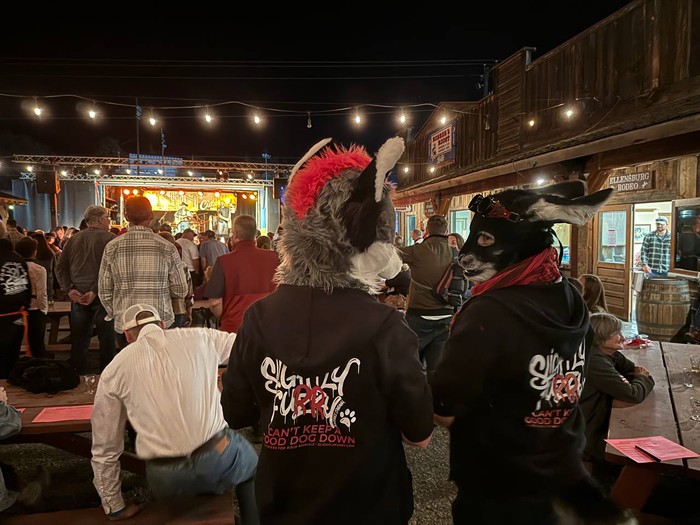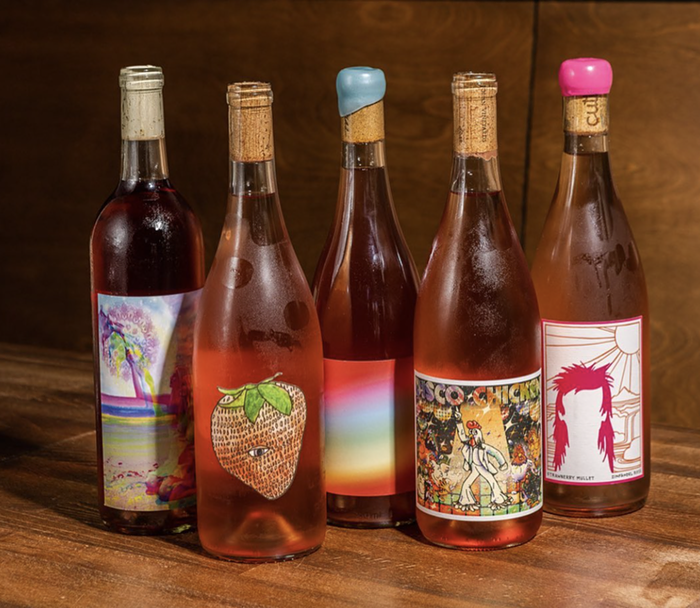"This be 'Fluke'?" inquires a man entering the depths of the bar at the Mecca on Sunday afternoon. (It eventually emerges that he is a librarian.) Outside it is sunny, with gutters dripping from a just-finished downpour; inside, as always, it is dark and timeless and weatherless, like a trip in a submarine for alcoholics. The only clue to the hour: the smell of syrup from the cafe, mingling with, still, the scent of cigarettes past.
This be "Fluke," an over-21 forum on Moby Dick held at one of Seattle's best dives. The one-time-only book club is preparatory to and in celebration of Fluke, an experiment in theater inspired by Herman Melville's epic, running at On the Boards, January 10 to 13. (Rumor has it that free beer is part of the experiment.) As people drift in, an On the Boards staff member tells of a lost evening in which an unknown woman, stretched out on her back on the Mecca's banquette, projectile-vomited the contents of her stomach up into the air. Paper signs on the tables indicate that the official name of the gathering is "The THERE SHE BLOWS! Book Club" and that attendees receive a discount on drinks.
An informal pre-meeting poll reveals that approximately half of those present haven't read the book. One pair of club members whispers in a corner nearly the entire time. Above their heads: a string of Christmas lights and a sign reading "WELCOME GREAT PUMPKIN!"
The members of the theater company—called Radiohole, from New York—have been freshly fetched from Sea-Tac Airport and conscripted into the Club. The one with the red lipstick appears less than amused; the one with the prodigious beard consults his laptop; the enormously pregnant one professes extreme hunger, then eats very little of a mushroom omelet; the one with the fisherman's cap intermittently commandeers the group (which is officially under the guidance of Stranger editor Christopher Frizzelle). The discussion is doldrums-free. Among the contentious topics: science in the text, accuracy/significance/intrinsic interest thereof; hierarchy and dominion as a dominant theme; the whale as representative of death; the whale as symbolic of infinity and ubiquity. Uncontested: the Iraq war as Ahabian; death as problematic. A dramatic reading of the chapter about squeezing whale sperm occurs.
Ahab's pursuit of the whale is compared to the pursuit of artistic greatness. "You can't create a great work of art, so you just try to do it," says Fisherman's Cap. The server comes by at that moment, saying, "Is everybody doing okay?" Everybody laughs. Moby Dick, it is agreed, is a work obsessed with process. One woman maintains, though, that too much process evident in an artistic endeavor is a bad thing: "No one wants to see that—it's like contact improv." The theater company titters. "Shhh," one of them says. ![]()
Mecca Cafe, 526 Queen Anne Ave N, 285-9728.
That "one-man welcoming committee" behind the bar is my son Gill, and you hit it dead-on with the reference to "the Dude." Your article caught the true essence of the Alki. My husband, Gill Sr., especially liked your remark that the Alki "doesn't give a damn and never will." After 31 years, why start now?
Just for the record, it's Taco Thursday. On Tuesday we have Wimpy burgers, same deal—$1 build-your-own with the same guy in the kitchen and Gill behind the bar. So come on down Tuesday. Thanks again for keeping the Alki alive and well.
Cathy McLynne
I'm sorry for the confusion, Butch. Onward and upward! I wish you and the Alki Tavern family a very happy New Year.
Alki Tavern, 1321 Harbor Ave SW, 932-9970


















